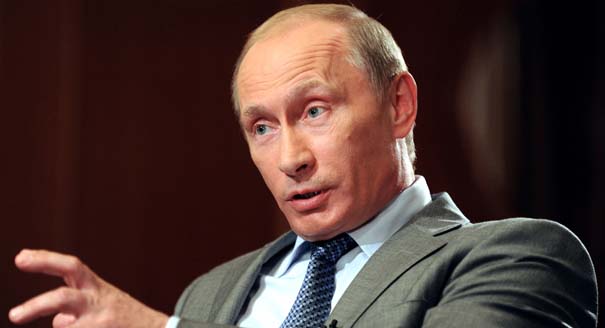In the context of Russian President Vladimir Putin’s goal to reestablish at least parts of Russia’s bygone empire, the annexation of Crimea looks like a smart move. Yet so far, the cost-benefit analysis of this illegal step seems to leave Russia in the red.
Before the Anschluss, Moscow controlled the whole of Ukraine through the compliant regime of former president Viktor Yanukovych. In the future, Russia will be able to sway only parts of a country that is on a slippery slope toward disintegration. Unwittingly, Putin added another source of instability to his already shaky Russian empire.
NATO, by contrast, has proven remarkably united, despite the limited impact it can exert in reaction to Russia’s aggression against a non–NATO member. Leaving aside minor differences among transatlantic allies—a little more readiness for concessions here, a little more rigor there—condemnation of Moscow’s breach of international law was unanimous. There was no comparison to the bitter fights over the Western interventions in Iraq or Libya.
Only months ago, many allies were anxiously asking how NATO could continue to justify its existence after withdrawing from Afghanistan this year and while still confronted with a severe financial crisis. Today, the alliance’s post-2014 raison d’être is clear—and not only for countries in Eastern Europe. In Sweden and Finland, a serious debate on joining NATO has started, while the Baltic governments are contemplating a significant increase in their defense budgets.
There is no reason to quip about EU inactivity this time. The EU was a key player in the Ukraine crisis and agreed on sanctions against Russia that, despite being moderate, will hurt. Being ousted from the G8 club might not be vital, but it dents Russia’s self-image as a major international player.
Poland is increasing its efforts to reduce its energy dependence on Russia through the fracking of shale gas, and the United States is assessing the possibility of exporting gas to those European NATO members that are threatened by Russian energy blackmail. Even the Federation of German Industries, a trade body, has declared that German firms will support further sanctions if the government decides to adopt them. All this is painful for Russia at a time when its long-term economic perspectives are far from rosy.
However, what looks like a negative cost-benefit analysis for Russia raises concerns in many NATO member states. Since Putin appears too smart to strike a bad deal, it is fair to assume that Moscow assesses costs and benefits differently from the West. If that is the case, Russia might be ready to take even bigger risks than just occupying Crimea to score points at home. The long-standing axiom that Russia would never dare commit an act of aggression against a NATO member because the repercussions would be too dangerous for Moscow could prove hollow.
Baltic governments anxiously ponder the scenario of Russia stirring up unrest among ethnic Russians in their countries to have a pretense to “protect” its citizens abroad. For instance, how would NATO react if Russian forces occupied a 30-mile-wide strip of Estonian border territory as a “safe haven” for ethnic Russians and provided them with Russian passports? Would it send in the NATO Response Force and start a major war over 30 miles of land? Doing nothing would mean the end of NATO as a functioning alliance.
To avoid such a scenario, NATO must act by sending a double message: a hint of resolve and decisiveness to Russia, and a sign of credible commitments to allies in the East. German Defense Minister Ursula von der Leyen was right to suggest sending a limited number of NATO soldiers to the alliance’s Eastern members. Military exercises in those countries and more permanent military deployments on their soil would reinforce this dual messaging.
Of course, Russia would immediately condemn those measures as provocative attempts to pour oil onto the fire. However, the fact that Russia’s reaction is likely to be echoed by two former German chancellors does not make that reaction any more correct. Taking precautionary measures against potential security challenges is in the very nature of a defense organization like NATO, and deploying small units on the alliance’s own territory is definitely not an offensive step.
Will this sequence of action and possible counteraction lead to a new cold war? Not at all, as two things are fundamentally different from before the Berlin Wall came down. First, Russia today is much weaker than the Soviet Union was during the East-West conflict and cannot pose such a universal threat. Second, it appears that current Russian policy is directed first and foremost by Putin and not by a state ideology, as in Soviet times.
If that is true, Putin’s successor—whenever he comes to power—may discover that Russia desperately needs modernization and that to modernize, it desperately needs the West. That is why it was right for EU and NATO not to burn all bridges. Putin, however, has lost all trust among his Western neighbors—if there ever was any to start with.
Karl-Heinz Kamp is the academic director of the Federal Academy for Security Policy in Berlin. The views expressed here are the responsibility of the author alone.






